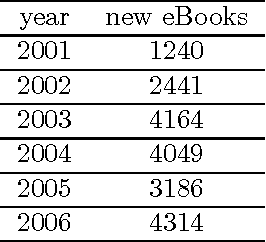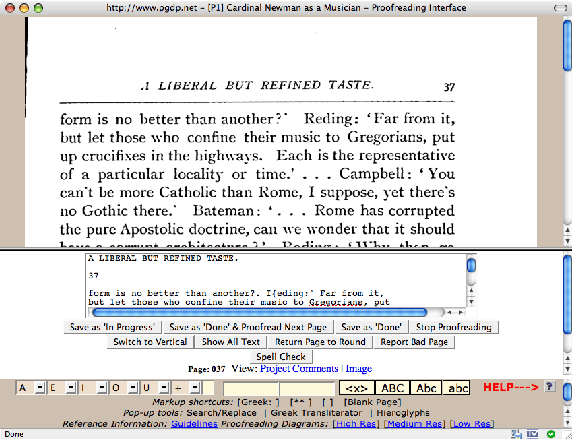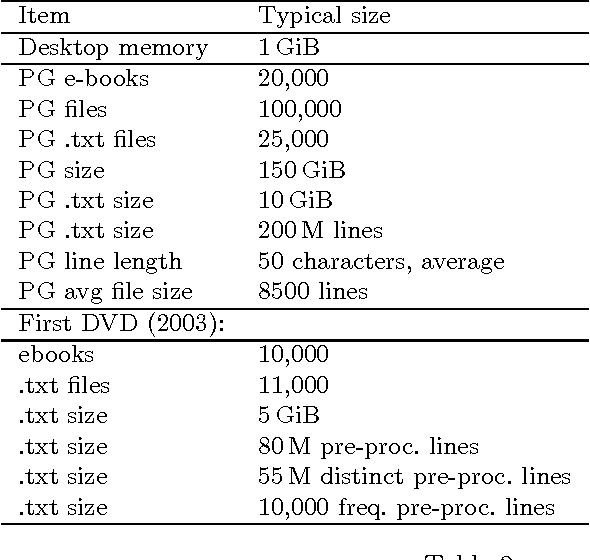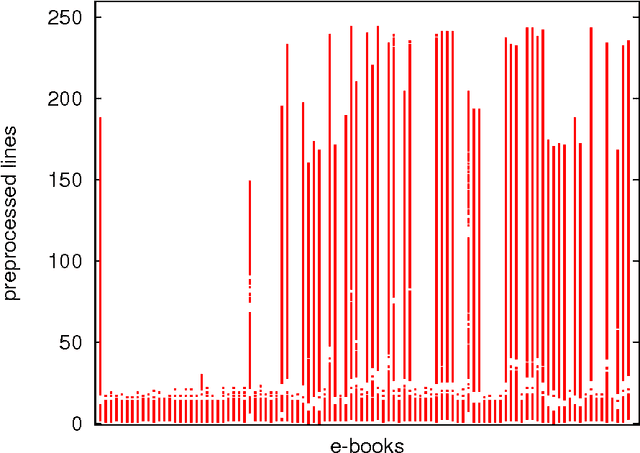Removing Manually-Generated Boilerplate from Electronic Texts: Experiments with Project Gutenberg e-Books
Paper and Code
Aug 22, 2016



Collaborative work on unstructured or semi-structured documents, such as in literature corpora or source code, often involves agreed upon templates containing metadata. These templates are not consistent across users and over time. Rule-based parsing of these templates is expensive to maintain and tends to fail as new documents are added. Statistical techniques based on frequent occurrences have the potential to identify automatically a large fraction of the templates, thus reducing the burden on the programmers. We investigate the case of the Project Gutenberg corpus, where most documents are in ASCII format with preambles and epilogues that are often copied and pasted or manually typed. We show that a statistical approach can solve most cases though some documents require knowledge of English. We also survey various technical solutions that make our approach applicable to large data sets.
 Add to Chrome
Add to Chrome Add to Firefox
Add to Firefox Add to Edge
Add to Edge